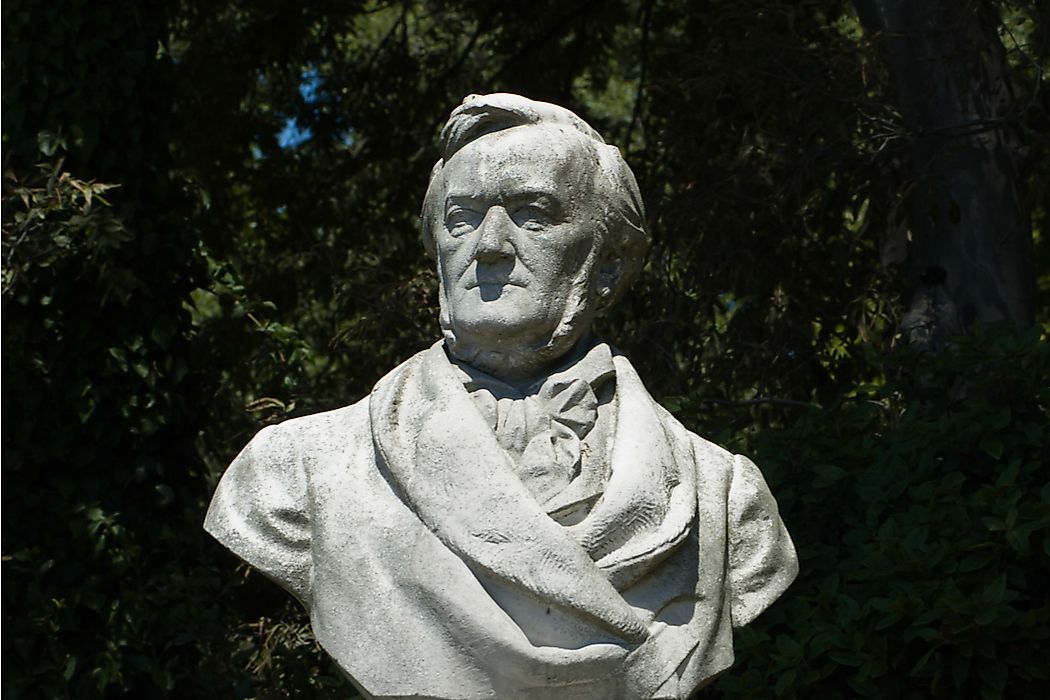Richard Wagner - Famous Composers in History

Richard Wagner was born on May 22, 1813 in Leipzig, Saxony, the present day Germany, to an ethnic German couple Carl Wagner and a police clerk Joanna. He was the ninth born in his family that lived in the Jewish quarter in Buhl. Wagner became a famous composer, polemicist, a conductor and theatre director known for his operas.
Early Life
Wagner’s father passed away when he was only six months old and his family moved to Ludwig Geyer, a family friend’s, home and later his mother married the playwright and actor. At a tender age, with his step-father’s influence, Wagner started taking part in theatre performances in Dresden. In 1820s, he enrolled for piano lessons at pastor Wetzel’s, School. He was sent to a boarding school in 1821 after the death of his step-father and in 1827, he started to write piano transcription of the 9th Symphony and working with orchestral shortly after his family relocated back to his home town. He became of the Saxon student fraternity after enrolling to Leipzig University in 1831. He married Christine an actor in 1836 in a church wedding.
Career
In 1833, he managed to obtain a position as a choir master at a theater in Wurzburg, and later the same year composing "The Fairies," his first Opera. He also served as musical director both in Magdeburg and Riga and as a Court Conductor in Dresden for six years. Later in 1842, he relocated to France where he continued with his works including writing articles and short novelette. His success was heightened in Bayreuth when he was able to start his own opera house.
Major Contributions
He contributed immensely through his exemplary artistic skills in operatic works and poems. These skills are still being used as references by current composers in their works. His opera concept “music drama” has played a great role in the theater performances since it was introduced. He also played a great role in composing excellent works in books, articles, and music including choral pieces and many more. He revolutionized opera through his idea of Gesamtkunstwerk also known as the “total work of Art” through which he synthesized the musical, poetic, dramatic, and visual arts with music subsidiary to drama. Wagner’s output comprises of 133 works that include fragments and projects. Currently, most of his works are under publication by Schott Music and editor is Egon Voss. By 2017, there are 21 volumes (57 books) of music and ten volumes (13 books), and 3 remain to be published.
Challenges
As a result of Richard being a polemicist, he experienced many challenges ranging from rejection from his own country to being exiled to Paris and later to Zurich for more than a decade. He felt his best works were never recognized and in his early career he struggled to gain the rewards and recognition he felt he deserved. The worst was that some of his works were misunderstood and became a center for controversies. For instance, his notable work Die Meistersinger and Opera Parsifal brought many views many concluding he was a propagator of anti-Semitism and racism. He accumulated large sums of debts from people that he had to run away from creditors in Riga.
Death and Legacy
On February 1883, he passed away and at the time he was 69. He was on vacation in Venice, Italy. A heart attack claimed Richard Wagner’s life. His legacy has largely been portrayed through the Bayreuth festival which is directed by his family celebrated annually since his death. Some of his works have also been portrayed in recent movies for example the 2007 Jonathan Harvey’s opera Wagner Dream. His concepts have widely been adapted in the theatres include the use of integrated musical expressions and leitmotifs.











